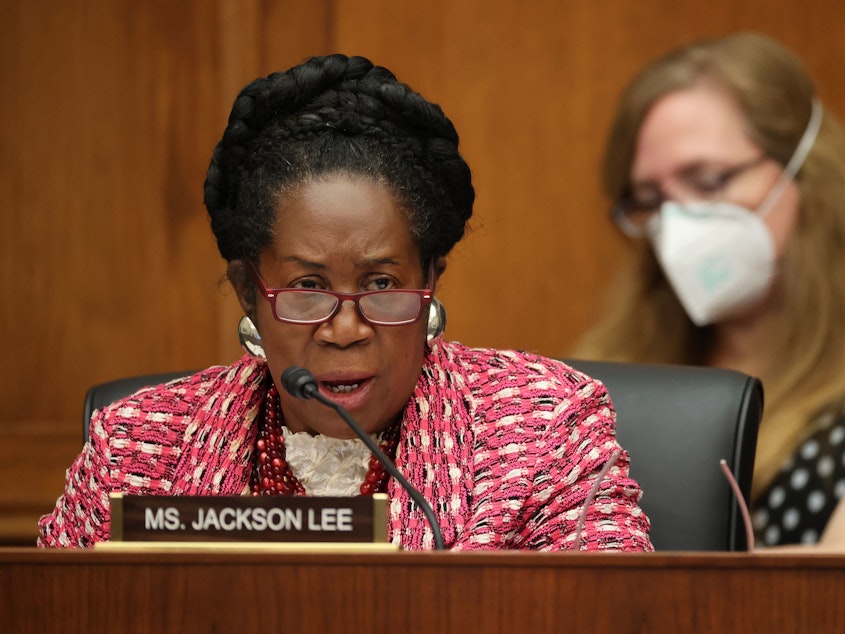Bill To Create Commission On Reparations Nears Historic House Vote

A bill that would establish a commission to develop proposals and a "national apology" to help repair the lasting effects of slavery is moving closer to a vote in the House.
Updated April 14, 2021 at 9:10 AM ET
The legislation has been stalled in the House for nearly 30 years, but the idea of reparations for African Americans has gained new traction amid a racial reckoning in this country.
The House Judiciary Committee is expected to mark up the bill and hold a vote on Wednesday. If it is reported out of committee, the legislation will receive its first floor vote since former Democratic Rep. John Conyers first introduced it in 1989.
Rep. Sheila Jackson Lee, the lead sponsor of the current bill, H.R. 40, described it as "enabling legislation to address the deep-seated racism and historic and systemic elements of mistreatment of African Americans through the centuries."
Sponsored
"We think it will be cleansing for this nation, and we think that it will be a step moving America forward to see us debate this question on the floor of the House," the Texas Democrat said.
The bill would create a 13-member commission that would study the effects of slavery and racial discrimination, hold hearings and recommend "appropriate remedies" to Congress.
Lawmakers who support the legislation say that it has more support than ever, and that today's descendants of slaves continue to suffer from the lingering legacy of slavery and persistent racial inequities.
"Understanding that the compounding nature of racism has created a dynamic where Black people today must not only grapple with living in a country built on our sustained oppression, but also observe the modern manifestations in our daily lives," said New York Democratic Rep. Jamaal Bowman, who cited the racial wealth gap as well as COVID-19 as examples.
Some proponents of the legislation acknowledge that it would be challenging to get it passed in the Senate, given the 60-vote threshold to overcome a filibuster and Democrats' narrow majority. The bill is likely to face Republican pushback in both the House and the Senate.
Sponsored
During a hearing on the legislation, Utah Republican Rep. Burgess Owens argued "it is impractical and a nonstarter for the United States government to pay reparations."
"It is also unfair and heartless to give Black Americans the hope that this is a reality," said Owens, who is Black.
After the House held a hearing on the issue in 2019, then-Senate Majority Leader Mitch McConnell, R-Ky., rejected the idea, arguing that it would be "hard to figure out whom to compensate."
"I don't think reparations for something that happened 150 years ago, for whom none of us currently living are responsible, is a good idea," McConnell said then.
Democratic Rep. Steve Cohen of Tennessee, the chair of a House Judiciary subcommittee, said Monday that "the Senate is not a good place to be with this legislation, or with any legislation that's progressive and advances interests of African Americans, in particular."
Sponsored
"You've got to have 10 Republicans right now," he added, "and there are not that many of them that are going to quit and not run again, and going to have a come to Jesus moment."
Biden met with members of the Congressional Black Caucus at the White House on Tuesday, and reparations was one of the topics discussed, according to lawmakers who participated in that meeting. Jackson Lee told reporters that "we have heard from not only the president, but the White House and his team, that he is committed to this concept." [Copyright 2021 NPR]

